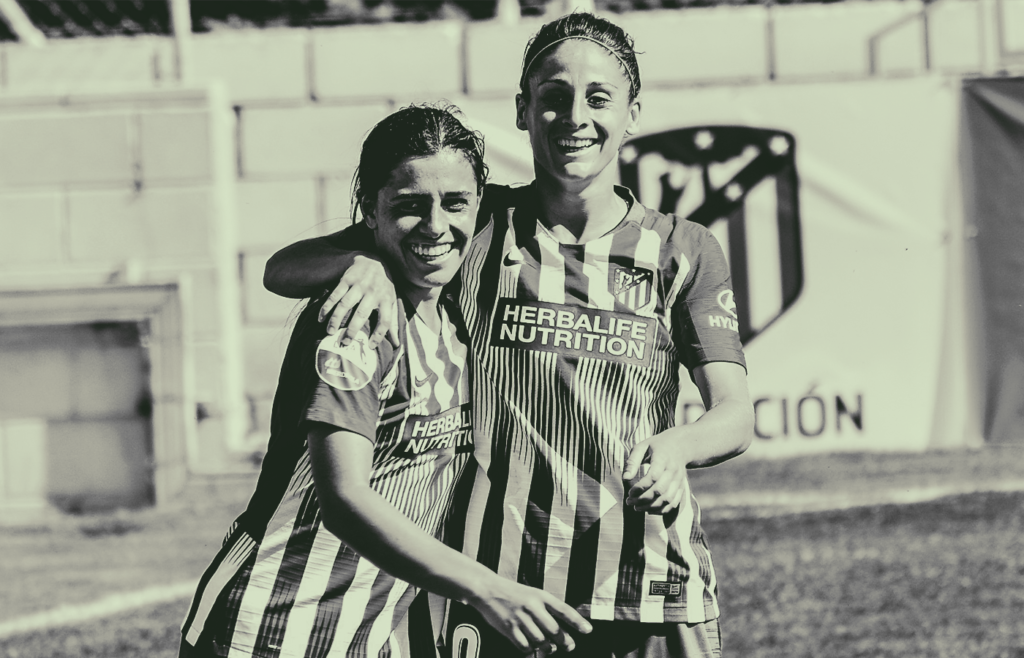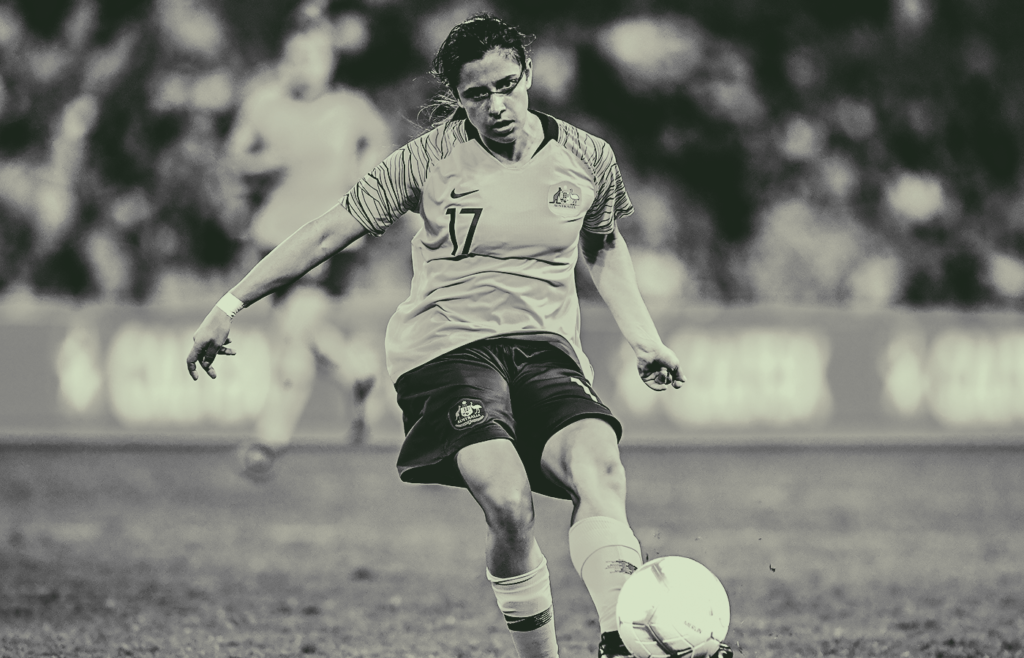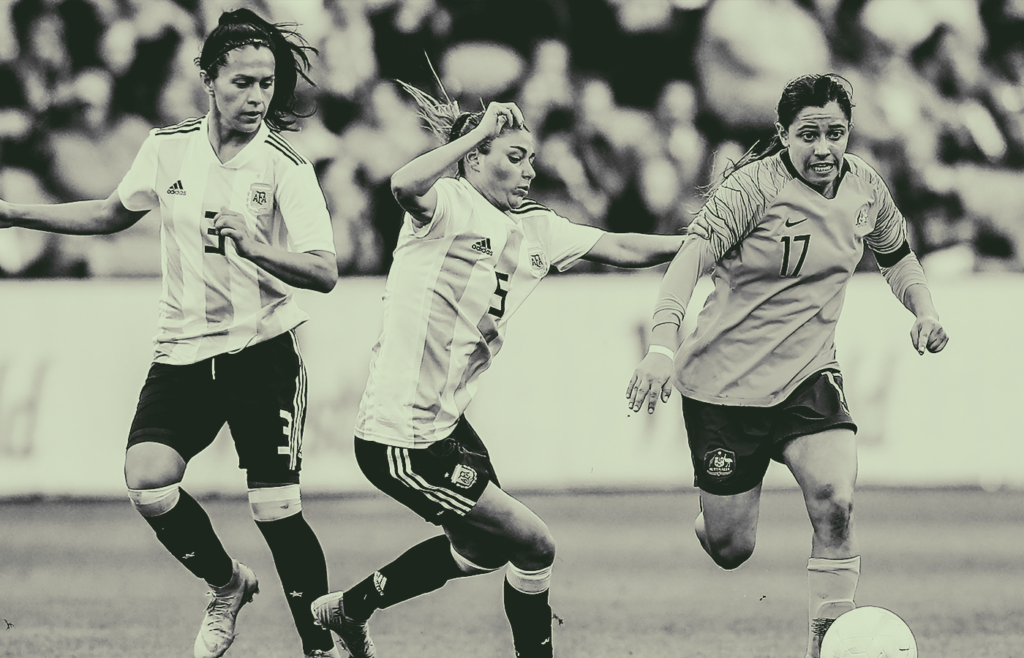
When the coronavirus pandemic spread to Europe, Spain rapidly evolved into one of the worst affected countries globally. For Matildas and Atlético Madrid Femenino midfielder Alex Chidiac, based in Spain’s capital, the situation quickly became precarious as cases exceeded 200,000 and deaths surged beyond 20,000.
Sensing a potential threat to her health and safety, the 21-year-old arranged to return to Australia. However, she quickly discovered the challenges currently facing overseas-based players in their attempts to return home. Pfa.net.au caught up with former W-League star to find out how she engineered her return to Australia and how she is now giving back to her community through the #PlayForLives campaign.
Q: What was the situation in Madrid like and how had the country responded to COVID-19?
AC: The situation went from zero to 100 overnight. One day we were all at training going through our normal routines and the next schools and universities were closing their doors, shops were getting raided for supplies, cafes and restaurants shut down, police were patrolling the streets. Rules and restrictions were changing every hour. We went into complete lockdown very quickly and had to adapt to the new rules straight away. We were only allowed to leave home if we needed to get food supplies, medical supplies or go to doctor’s appointments. We were unable to even go outside for a walk. If we left our place with no valid reason we could be fined.
Q: Was there any point in which you were concerned about your personal safety?
AC: At the beginning I didn’t really have time to think about my situation. It was strange going through it all in a different country not being able to fully understand what they were saying on the news. A week in we realised the hospital across the road was one of the worst hit by the virus. As the days passed and the number of cases went up, I started to feel uneasy at the thought of not being able to come back home to see my family in case of an emergency.
Of course I had some personal worries about if anything happened to me, but what I was struggling with the most was just being away from family. I checked flights daily and the restrictions were changing rapidly. I was listening to the news from Australia calling all Aussies to return home as soon as possible. I even spoke to the Australian consulate in Madrid a few times urging me to go. I had a bag packed to leave at any moment.

Q: What support did your club provide you?
AC: The club provided us with some training equipment at home and weekly programs to follow, but it was really hard to complete the sessions in the living room in our small apartment. We had a couple updates via WhatsApp every few days mainly just reminding us to stay at home and wash our hands.
Q: What support did the PFA provide?
AC: The PFA were checking in with me almost daily to see how I was going and get an update on my situation. We spoke about connecting me with a psychologist I could speak to if I needed an extra support and they provided me with a lot of advice on what questions to ask the club and what conversations I should be having with them. They helped me understand my legal rights in the situation and guided me through the whole process. I’m very grateful for the work they did and are continuing to do.
Q: Since you returned to Australia, you have been involved in community work, giving back to the community through the #PlayForLives campaign. But before that you had previously signed up to support the Common Goal project?
AC: I first found out about Common Goal last season and joined immediately. I’ve pledged one per cent of my salary through them to an organisation called “Moving the Goalposts”. They use sport to overcome social obstacles girls and young women face in coastal Kenya and create a safe space for them to understand their rights and take up leadership roles in their communities. My aim is to one day be able to go visit them and play more of an active role in the organisation.

Q: How did you get involved in the #PlayForLives campaign – and what has it involved so far?
AC: I got involved in the #PlayForLives campaign after receiving an email from the PFA. It was actually at the beginning of my time in hotel quarantine once I landed in Melbourne. I wanted to do something with all the time I had and saw that there were opportunities I could do online, so I started applying for a few. As the time came closer to my release from the hotel, I looked for any hands-on opportunities coming up and found a couple with Variety Children’s Charity. So far I’ve been out there to help package ‘joy packs’ of toys for vulnerable children and deliver them out to families.
I’ll also be sending some videos of support to kids and hosting a football session in my living room next Friday with welcoming Sport Australia.
Q: What initially motivated you to get involved and give back to your community?
AC: I don’t remember an initial moment that made me want to give back to my community, I think it’s just something I’ve always wanted to be involved in. Seeing how much of an impact it can create in people’s lives is what makes me want to be involved as much as possible.
For nearly a year now I’ve been an ambassador for One Culture Football in Adelaide. I’m looking into starting a Diploma in Community Development at the moment so being actively involved with these charities and learning more about them has made me want to do even more.

Q: What can – or should – other footballers do at this time to help #PlayForLives and their communities?
AC: As footballers I think we are in a privileged position where we have young people looking up to us for what we do on the field. It would be great if they could also look up to us for what we also do off it.
It doesn’t take much to give back to our communities and specially during this time just lending a hand could make a massive impact. There are so many opportunities on the Be Collective website, it’s really easy to get involved and particularly right now when we have all this spare time, I think it would be great to see as many people giving back as possible.








